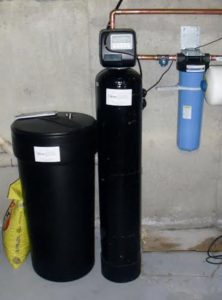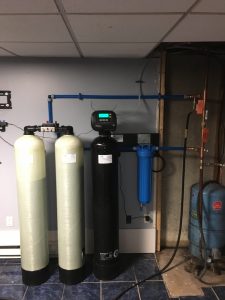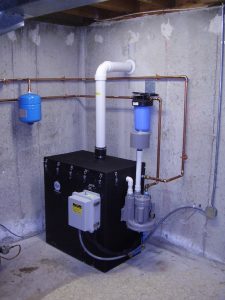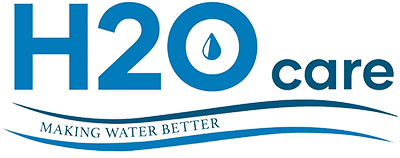All new wells in Bolton must be approved by the Board of Health prior to any well drilling and must be tested after drilling to the approval of the Board. In many cases, some type of water filtration system or water softener will be required to deal with the aesthetically displeasing or health threats of certain minerals or contaminants that may be present. Commonly found are hardness minerals (magnesium & calcium), iron, manganese and low pH. Less common, but sometimes found are radon, arsenic or nitrates.
WATER TESTING
![]()
Water testing should be conducted by an EPA or Massachusetts state certified laboratory and should minimally include analysis for the parameters listed below. If you are uncertain as to how to take a proper sample and get it to a lab, you should contact a lab or water treatment professional for assistance. A qualified water treatment professional can test for certain items on-site while others will require a lab. Typical items tested for, among others, are as follows:
Coliform bacteria, pH,
Arsenic, Radon
Chloride, Sodium
Iron, Sulfate
Lead, Conductivity (TDS)
Manganese, Nitrogen-Nitrates
COMMON WATER QUALITY ISSUES
The common issues encountered in Bolton private wells are manganese and iron along with low pH and sometimes radon and arsenic making their way into the water. If the testing results for Radon exceed the current Massachusetts guideline of 10,000 pCi/L in water, the radon must be removed from the water and the Board of Health recommends testing the air for Radon as well. It should be noted that tighter action levels are required in other states such as New Hampshire requiring action if radon is 2,000 pCi/L (pico curries per liter); Maine and Rhode Island are at 4,000 pCi/L and the EPA is recommending 4,000 pCi/L as an action level. The maximum allowable level of Arsenic in drinking water per the EPA is .01 mg/L (miligrams per liter) or 10 parts per billion. For more information on Arsenic in water see the link at Mass.gov Arsenic Info. Additionally, see our article in Water Technology Magazine for more detail at http://www.h2ocarepub.com.

Water Softener with Sediment Filtration
Water softeners are typically installed to remove dissolved iron or manganese in the water through a technology called Ion Exchange. Sediment cartridge filtration will remove particulate iron or manganese in the water. Arsenic is removed with tanks containing a specific media that “grabs” the arsenic out of the water.

Twin Arsenic system with Ozone
Removing radon from water requires a system where the water is highly agitated releasing the radon gas from the water in a sealed chamber, then vented safely outside the home to ambient air. Other technologies and systems may be required to remove other contaminants.

Radon in Water Filtration
Any water filtration or water softener system designed should start with a water test before an informed recommendation can be made.
H2O Care is an established Massachusetts based water filtration and testing firm, formed in 1989, with offices in Stow & Middleton, MA. Articles published by the Company can be seen in Water Technology Magazines at http://www.h2ocare.com. Contact us at [email protected] or 800-539-1100.



